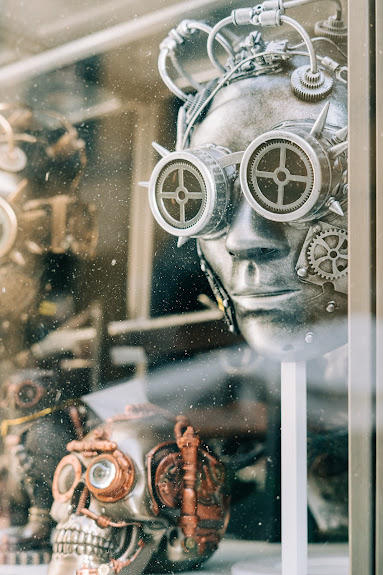"Is AI extra accurate than people? Exploring the position of artificial Intelligence in choice-Making"
introduction
artificial Intelligence (AI) has emerged as a effective device in numerous industries, revolutionizing the manner we approach obligations that require decision-making, statistics evaluation, and pattern popularity. one of the key debates surrounding AI is whether or not it's far greater accurate than humans in making selections. This essay will discover this question via analyzing the blessings and barriers of AI in comparison to human decision-makers throughout unique domains.
blessings of AI Accuracy
1. **Consistency**: one of the primary advantages of AI over human beings is its unwavering consistency. AI algorithms can perform responsibilities tirelessly 24/7 with out experiencing fatigue or emotional fluctuations which can have an effect on human judgment. This consistency ensures that AI structures offer the same degree of accuracy at all times.
2. **speed and Processing strength**: AI systems, particularly gadget mastering algorithms, can process giant amounts of information in seconds, a feat that would take humans drastically extra time. This rapid processing allows AI to pick out styles and traits that could pass omitted with the aid of human observers.
three. **statistics-driven choices**: AI bases its selections on facts and predefined regulations, minimizing the have an effect on of emotions, biases, or external elements that could cloud human judgment. This data-driven method regularly ends in objective and correct consequences.
four. **specialised understanding**: AI can be specialized in numerous domains, from medical analysis to economic analysis. In these particular domain names, AI can access and examine a comprehensive information base, ensuring a excessive diploma of accuracy.
five. **hazard management**: AI can excel in excessive-risk environments wherein human protection is a challenge. for example, AI-managed autonomous vehicles can make cut up-second selections to keep away from injuries, doubtlessly lowering human errors which can lead to accidents.
6. **Scalability**: AI can scale to handle large volumes of records and obligations concurrently, making it suitable for packages that require high-velocity, high-extent processing.
barriers of AI Accuracy
1. **lack of not unusual experience**: AI often lacks not unusual experience reasoning, making it vulnerable to mistakes in conditions that require context or human know-how. AI might produce technically accurate consequences but fail to grasp the broader implications of its choices.
2. **Bias and fairness**: AI algorithms can inherit biases from the facts they are educated on, main to unfair or discriminatory results. ensuring equity and addressing bias in AI structures remains a tremendous venture.
three. **complicated decision-Making**: even as AI excels at specific responsibilities, it could conflict with complex selection-making that requires nuanced judgment, empathy, or creativity. Human instinct and emotional intelligence regularly play vital roles in such situations.
four. **Interpretability**: AI choices can from time to time be difficult to interpret or explain, which may be problematic in fields in which duty and transparency are crucial, consisting of regulation and healthcare.
five. **moral issues**: AI selection-making might not align with human values and ethics, main to moral dilemmas and questions on who must be held liable for AI-generated selections.
conclusion
In conclusion, whether AI is more accurate than humans depends at the unique challenge and context. AI excels in tasks that require consistency, speed, information-driven evaluation, and specialised knowledge. it is able to outperform human beings in domains like facts evaluation, photograph recognition, and hazard control, regularly offering extra accurate and goal consequences.
however, AI has barriers in regions that require common feel reasoning, emotional intelligence, and complicated selection-making. moreover, issues about bias, fairness, interpretability, and ethical considerations are critical elements that should be addressed whilst comparing AI's accuracy as compared to humans.
ultimately, the correct approach often includes leveraging the strengths of each AI and human decision-makers. Combining AI's pace and data-processing capabilities with human judgment, instinct, and moral concerns can result in extra accurate and accountable selection-making across a huge variety of programs. As AI maintains to boost, placing the proper balance between AI and human involvement will continue to be a primary undertaking in various industries.

Comments
Post a Comment